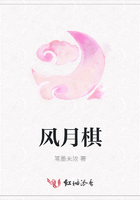As he said this he began to weep so bitterly that he filled us all with compassion and forced Zoraida to look at him, and when she saw him weeping she was so moved that she rose from my feet and ran to throw her arms round him, and pressing her face to his, they both gave way to such an outburst of tears that several of us were constrained to keep them company.
But when her father saw her in full dress and with all her jewels about her, he said to her in his own language, "What means this, my daughter? Last night, before this terrible misfortune in which we are plunged befell us, I saw thee in thy everyday and indoor garments; and now, without having had time to attire thyself, and without my bringing thee any joyful tidings to furnish an occasion for adorning and bedecking thyself, I see thee arrayed in the finest attire it would be in my power to give thee when fortune was most kind to us.
Answer me this; for it causes me greater anxiety and surprise than even this misfortune itself."
The renegade interpreted to us what the Moor said to his daughter; she, however, returned him no answer. But when he observed in one corner of the vessel the little trunk in which she used to keep her jewels, which he well knew he had left in Algiers and had not brought to the garden, he was still more amazed, and asked her how that trunk had come into our hands, and what there was in it. To which the renegade, without waiting for Zoraida to reply, made answer, "Do not trouble thyself by asking thy daughter Zoraida so many questions, senor, for the one answer I will give thee will serve for all; I would have thee know that she is a Christian, and that it is she who has been the file for our chains and our deliverer from captivity. She is here of her own free will, as glad, I imagine, to find herself in this position as he who escapes from darkness into the light, from death to life, and from suffering to glory."
"Daughter, is this true, what he says?" cried the Moor.
"It is," replied Zoraida.
"That thou art in truth a Christian," said the old man, "and that thou hast given thy father into the power of his enemies?"
To which Zoraida made answer, "A Christian I am, but it is not I who have placed thee in this position, for it never was my wish to leave thee or do thee harm, but only to do good to myself."
"And what good hast thou done thyself, daughter?" said he.
"Ask thou that," said she, "of Lela Marien, for she can tell thee better than I."
The Moor had hardly heard these words when with marvellous quickness he flung himself headforemost into the sea, where no doubt he would have been drowned had not the long and full dress he wore held him up for a little on the surface of the water. Zoraida cried aloud to us to save him, and we all hastened to help, and seizing him by his robe we drew him in half drowned and insensible, at which Zoraida was in such distress that she wept over him as piteously and bitterly as though he were already dead. We turned him upon his face and he voided a great quantity of water, and at the end of two hours came to himself. Meanwhile, the wind having changed we were compelled to head for the land, and ply our oars to avoid being driven on shore; but it was our good fortune to reach a creek that lies on one side of a small promontory or cape, called by the Moors that of the "Cava rumia," which in our language means "the wicked Christian woman;" for it is a tradition among them that La Cava, through whom Spain was lost, lies buried at that spot; "cava" in their language meaning "wicked woman," and "rumia" "Christian;" moreover, they count it unlucky to anchor there when necessity compels them, and they never do so otherwise. For us, however, it was not the resting-place of the wicked woman but a haven of safety for our relief, so much had the sea now got up. We posted a look-out on shore, and never let the oars out of our hands, and ate of the stores the renegade had laid in, imploring God and Our Lady with all our hearts to help and protect us, that we might give a happy ending to a beginning so prosperous. At the entreaty of Zoraida orders were given to set on shore her father and the other Moors who were still bound, for she could not endure, nor could her tender heart bear to see her father in bonds and her fellow-countrymen prisoners before her eyes. We promised her to do this at the moment of departure, for as it was uninhabited we ran no risk in releasing them at that place.
Our prayers were not so far in vain as to be unheard by Heaven, for after a while the wind changed in our favour, and made the sea calm, inviting us once more to resume our voyage with a good heart.
Seeing this we unbound the Moors, and one by one put them on shore, at which they were filled with amazement; but when we came to land Zoraida's father, who had now completely recovered his senses, he said:
"Why is it, think ye, Christians, that this wicked woman is rejoiced at your giving me my liberty? Think ye it is because of the affection she bears me? Nay verily, it is only because of the hindrance my presence offers to the execution of her base designs. And think not that it is her belief that yours is better than ours that has led her to change her religion; it is only because she knows that immodesty is more freely practised in your country than in ours."
Then turning to Zoraida, while I and another of the Christians held him fast by both arms, lest he should do some mad act, he said to her, "Infamous girl, misguided maiden, whither in thy blindness and madness art thou going in the hands of these dogs, our natural enemies? Cursed be the hour when I begot thee! Cursed the luxury and indulgence in which I reared thee!"















